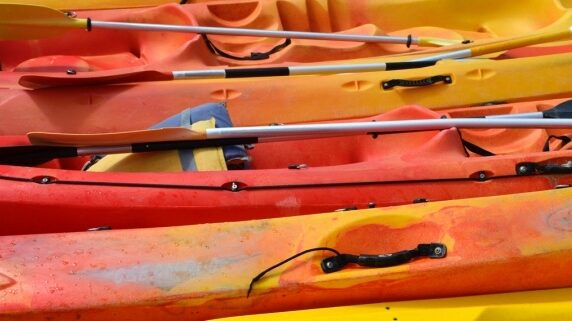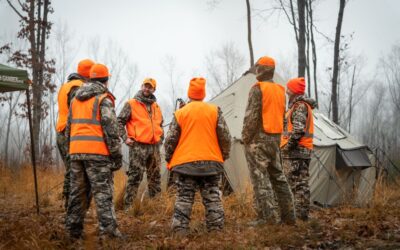More and more, Tennessee Wildlife Federation has heard from anglers and private paddlers that commercial canoe and kayak rental services are dominating public waterways and access points. Without basic rules, heavy traffic too often drives individual users off rivers and can lead to unnecessary damage to habitats. Meanwhile, the commercial operators do not contribute to maintaining the resource they profit from.
READ MORE>> Sharing our Rivers
Since late 2017, the Federation and its partners and volunteers have been working toward solutions to better share our rivers. Now is the time for the next steps in this effort.
Comprehensive river recreation management plans allow for all users of these waters to have a quality experience. The Caney Fork and Harpeth rivers have emerged as ideal candidates for such plans.
TAKE ACTION>> Join the Share Our Rivers Coalition
The public policy process is designed to be slow, which can be frustrating. But our persistence has produced some important initial results. It will require us to work with all the other users of the rivers to find real solutions. And it will require all users to participate in the cost of ensuring these treasures are conserved and available for our and our children’s use moving forward.
If you are interested in helping, join the Share Our Rivers Coalition. And be on the lookout for new developments as we head into the heart of the summer.
2017
- Tennessee Wildlife Federation heard from anglers and private paddlers that commercial paddlecraft (kayak and canoe) operators were practically dominating cherished rivers, such as the Caney Fork and Harpeth, as well as public access points.
- The Federation began discussing with Tennessee Wildlife Resources Agency (TWRA) and the Tennessee Fish and Wildlife Commission (TFWC) the need to engage on this issue and develop a solution that will address these challenges, specifically any degradation of recreational experiences or habitats.
2018
- Late winter and spring of 2018, the Federation developed and secured passage of Public Chapter 969 to give the Tennessee Fish and Wildlife Commission the authority to create rules for the management of commercial paddlecraft operators throughout Tennessee.
- As a result, the TFWC directs TWRA to lead a public process to develop the rules that will allow the agency to implement Public Chapter 969.
- The Federation organizes a coalition of interested anglers, fishing guides, and business owners who have been significantly impacted by these issues in order to provide insights to TWRA and others.
- During the summer and early fall of 2018, TWRA holds stakeholder meetings with canoe and kayak commercial operators and representatives of the Federation’s recreational waters coalition. These meetings allow the agency to share with all stakeholders the draft rules it has created. Commercial paddlecraft operators bring their lawyer and lobbyist to these meetings and formally request the agency stop any rulemaking.
- In November, the Federation launches the Share Our Rivers Coalition to show public support for reasonable rules for commercial operators and to take actions against bills in the Tennessee General Assembly that threatened these rules.
2019
- That January, TWRA finalizes its public process to develop rules (TWRA Rule 1660-04-01) that were unanimously approved. Under these adopted rules, commercial paddlecraft rental services must obtain a permit; meet certain safety standards, including safety briefings for renters; and document how many commercial trips they are generating on what portions of our rivers.
- The same month, commercial operator lobbyists file three bills to limit—or completely repeal Public Chapter 969 and Rule 1660-04-01—the new authority and rules for commercial operators before they even take effect. Their efforts prevent the agency from immediately implementing a fee on commercial operators. Without data on the number of trips being taken, there was no commonsense way to develop a fee structure for paddlecraft operators.
- Through the work of the Federation and the Share Our Rivers Coalition, Tennesseans send more than 43,000 emails supporting a solution to overcrowding to TFWC commissioners, legislators, and chambers of commerce.
- By February, the newly-sworn-in Governor Lee signs Executive Order #5, delaying the implementation of all newly adopted rules–including Rule 1660-04-01.
- In March, the Federation’s coalition meets with legislators at the Tennessee General Assembly to support Public Chapter 969 and Rule 1660-04-01. Coalition members also voice opposition to the three commercial-operator-filed bills that seek to limit or completely roll back the commercial paddlecraft rules passed by the TFWC.
- The next month, Public Chapter 969 and Rule 1660-04-01 are successfully defended by the Federation’s coalition of anglers, guides, businesses and volunteers who visited the capitol and lobbied members of the General Assembly. Of the three bills filed by commercial operators, two of these are killed in committee and the other amended to make it inert.
- Because of Executive Order #5, TWRA must wait to implement Rule 1660-04-01. But it does lay the foundation to establish a commercial paddlecraft advisory committee, that is part of the approved rule.
2020
- The TWRA paddlecraft Rule 1660-04-01 goes into effect on January 1. Commercial paddlecraft rental services must now:
- obtain a permit;
- meet certain safety standards, including safety briefings for renters;
- and document how many commercial trips they are generating on what portions of our rivers.
- No fees were included in the final rules because there was no data about commercial trip volume. This is needed to develop a common sense fee structure for paddlecraft operators. However, that data is now being collected.




